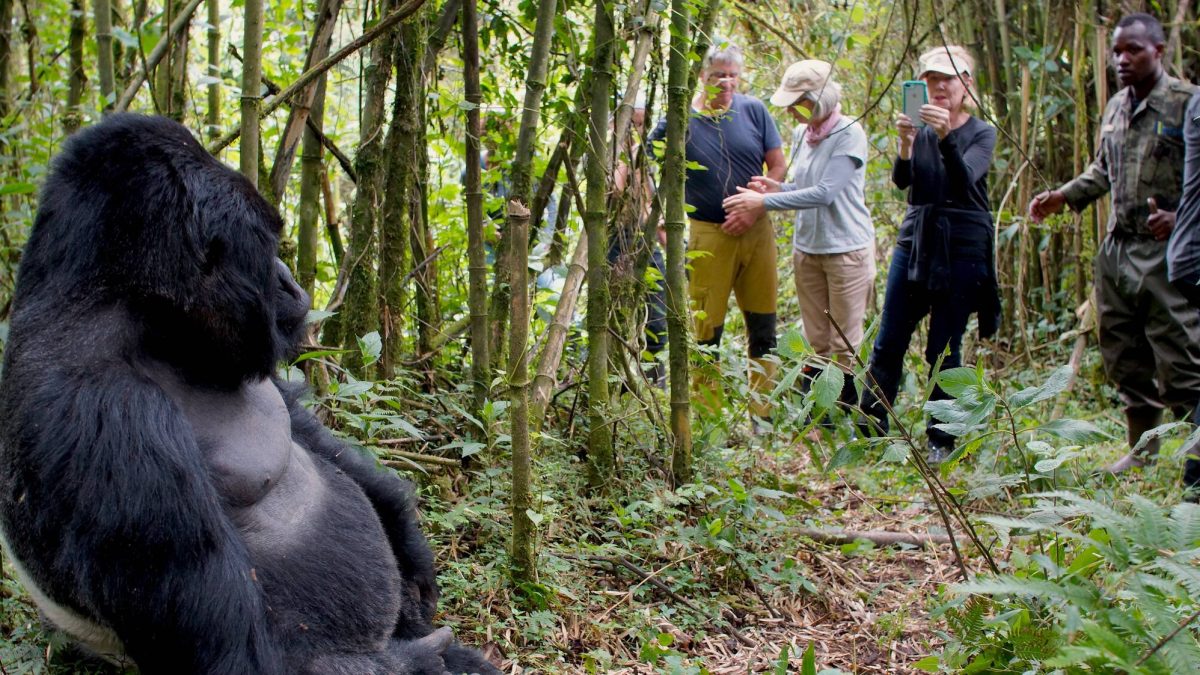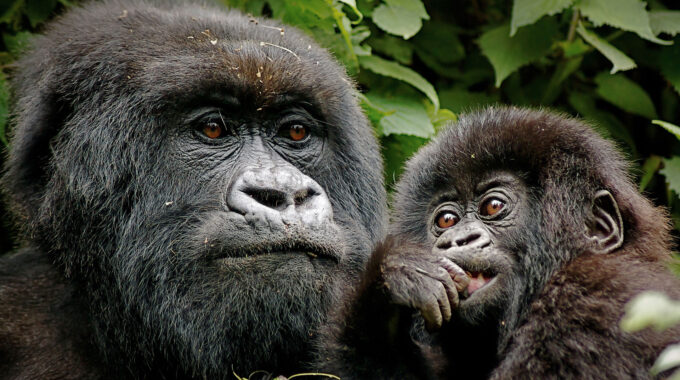Local Cuisine to Try During Your Stay in Rwanda Local cuisine in Rwanda: Rwanda is…
Language and Communication Tips for Travelers
Language and Communication Tips for Travelers

Introduction
Language tips for travelers in Rwanda: Traveling to Rwanda for an unforgettable gorilla trekking experience involves more than just permits and packing—it also requires effective communication. While Rwanda is one of the most traveler-friendly countries in East Africa, a few language and communication tips can go a long way toward enhancing your experience. Understanding basic greetings, cultural etiquette, and how to communicate in rural areas will help you connect with locals, navigate logistics smoothly, and show respect for the country’s rich traditions.
In this comprehensive guide, we explore language tips for travelers in Rwanda, the key languages spoken, and how to communicate effectively in both urban and rural settings, particularly when preparing for a trek in Volcanoes National Park or visiting remote villages.
Official Languages in Rwanda
Rwanda officially recognizes four national languages:
- Kinyarwanda – the national language spoken by almost all Rwandans
- English – widely used in business, tourism, and government
- French – still spoken, especially by older generations
- Swahili – growing in use due to East African integration
Kinyarwanda: The Heart of Rwandan Culture
Kinyarwanda is the most widely spoken language in Rwanda and plays a key role in cultural identity. From Kigali to the remote mountain villages near Volcanoes National Park, you’ll hear Kinyarwanda used in greetings, market negotiations, and daily life.
Learning just a few words can dramatically improve your experience.
- Muraho (moo-rah-hoh) – Hello
- Amakuru? (ah-mah-koo-roo?) – How are you?
- Yego (yeh-go) – Yes
- Oya (oh-yah) – No
- Murakoze (moo-rah-ko-zeh) – Thank you
- Bite (bee-teh) – Hi (informal)
English and French Usage
English is now the primary language of instruction in schools and is widely used in hotels, tourism businesses, and government offices. If you’re booking your gorilla trekking safari, dealing with immigration, or staying in mid- to high-end accommodations, you’ll likely encounter fluent English speakers.
French still retains cultural importance, particularly with older Rwandans and in some Catholic institutions. You might hear:
- Bonjour – Hello
- Merci – Thank you
- Comment ça va? – How are you?
Understanding a bit of French can help in towns or with older locals, but it is less essential than it once was.
Swahili: The East African Trade Language
Though not native to Rwanda, Swahili is widely spoken in neighboring Uganda, Kenya, and Tanzania and is increasingly used in cross-border trade. Some Rwandans, particularly in border areas and markets, speak conversational Swahili.
Key Swahili words:
- Habari – Hello / How are you?
- Asante – Thank you
- Karibu – Welcome
- Ndiyo – Yes
- Hapana – No
Communication Tips for Travelers in Rwanda
1. Learn Key Phrases in Kinyarwanda
Even a simple greeting in Kinyarwanda can earn you respect and smiles. Rwandans deeply appreciate efforts by foreigners to speak their language, no matter how limited.
Pro tip: Learn these phrases before you arrive:
- Nitwa [your name] – My name is [your name]
- Ndashaka amazi – I want water
- Mumbabarire – Excuse me / Sorry
2. Use Simple English in Rural Areas
In remote areas like the communities surrounding Volcanoes National Park, many locals speak only limited English. When communicating with porters, local guides, or villagers:
- Speak slowly and clearly
- Avoid slang or idioms
- Use gestures or point to what you’re referring to
- Repeat instructions if necessary
3. Hire a Local Guide or Translator
Reputable tour operators like Gorilla Rwanda Safaris always provide English-speaking guides—and often ones fluent in French and Kinyarwanda. These professionals act as cultural liaisons, helping you:
- Communicate with locals
- Ask questions during treks
- Understand cultural norms and etiquette
- Translate emergency situations if they arise
Hiring a local guide also supports the community and enhances your cultural immersion.
4. Use Translation Apps (With Caution)
Apps like Google Translate can be handy, especially for translating signage or typing out phrases. However, be cautious:
- Kinyarwanda translations may be inaccurate or overly literal
- Internet access in remote areas may be limited
- Always double-check translated phrases with your guide
Download offline dictionaries for Kinyarwanda, French, and Swahili before your trip.
Cultural Communication Etiquette
👋 Greetings Matter
- Always greet people politely and with a smile
- A handshake is the most common greeting (soft and brief)
- Use the right-hand or both hands when giving or receiving items—it shows respect
🙅♂️ Avoid Pointing or Loudness
- Pointing at people is considered rude
- Maintain a calm and respectful tone at all times
👀 Respect Hierarchy
- Address elders formally and with reverence
- Avoid interrupting or speaking over someone during conversations
Communication During Gorilla Trekking
With Rangers and Trackers
- Speak in English or ask for a translator
- Always follow instructions precisely
- Ask questions respectfully—they’re happy to educate you about gorilla behavior and conservation
With Porters
Many porters are former poachers turned conservation allies. They may only speak Kinyarwanda or minimal English. Use:
- Friendly gestures
- Your guide to translate
- Basic greetings or appreciation like “Murakoze”
Internet and Mobile Communication in Rwanda
1. Local SIM Cards
- MTN and Airtel are the main providers
- SIM cards are inexpensive and offer 3G/4G data packages
- Bring an unlocked phone to use a local SIM
2. Wi-Fi Availability
- Wi-Fi is available in most hotels, lodges, and restaurants in Kigali and tourist hubs
- In rural lodges near Volcanoes National Park, expect slower or intermittent service
3. Using WhatsApp
WhatsApp is the most common messaging platform in Rwanda and is often used for:
- Confirming bookings
- Contacting tour operators or drivers
- Staying in touch with guides
Do I Need to Speak Kinyarwanda to Enjoy My Trip?
Not at all. English is widely understood in tourism circles, and your guide will ensure smooth communication. However, a few local phrases can enhance your trip, make you more approachable, and lead to meaningful interactions.
Suggested Related Blog Posts
- What to Pack for Gorilla Trekking in Rwanda
- Cultural Etiquette and Customs in Rwanda
- Understanding the Park’s Ecosystem
- Accessibility and Transportation to Volcanoes National Park
- How to Hire a Porter for Your Trek
External Resources
- Rwanda Development Board – Travel Tips
- BBC Languages – Kinyarwanda Basics
- Ethnologue – Languages of Rwanda
- Google Translate Kinyarwanda
Final Thoughts
Being aware of language and communication norms in Rwanda is not just about logistics—it’s a way to show respect for the people and culture you’re visiting. Whether you’re trekking to see mountain gorillas, staying in a local homestay, or navigating city streets, your efforts to connect through language will open doors—sometimes quite literally.
So learn a few phrases, speak with kindness, and embrace Rwanda’s welcoming spirit. Murakoze cyane! (Thank you very much!)



